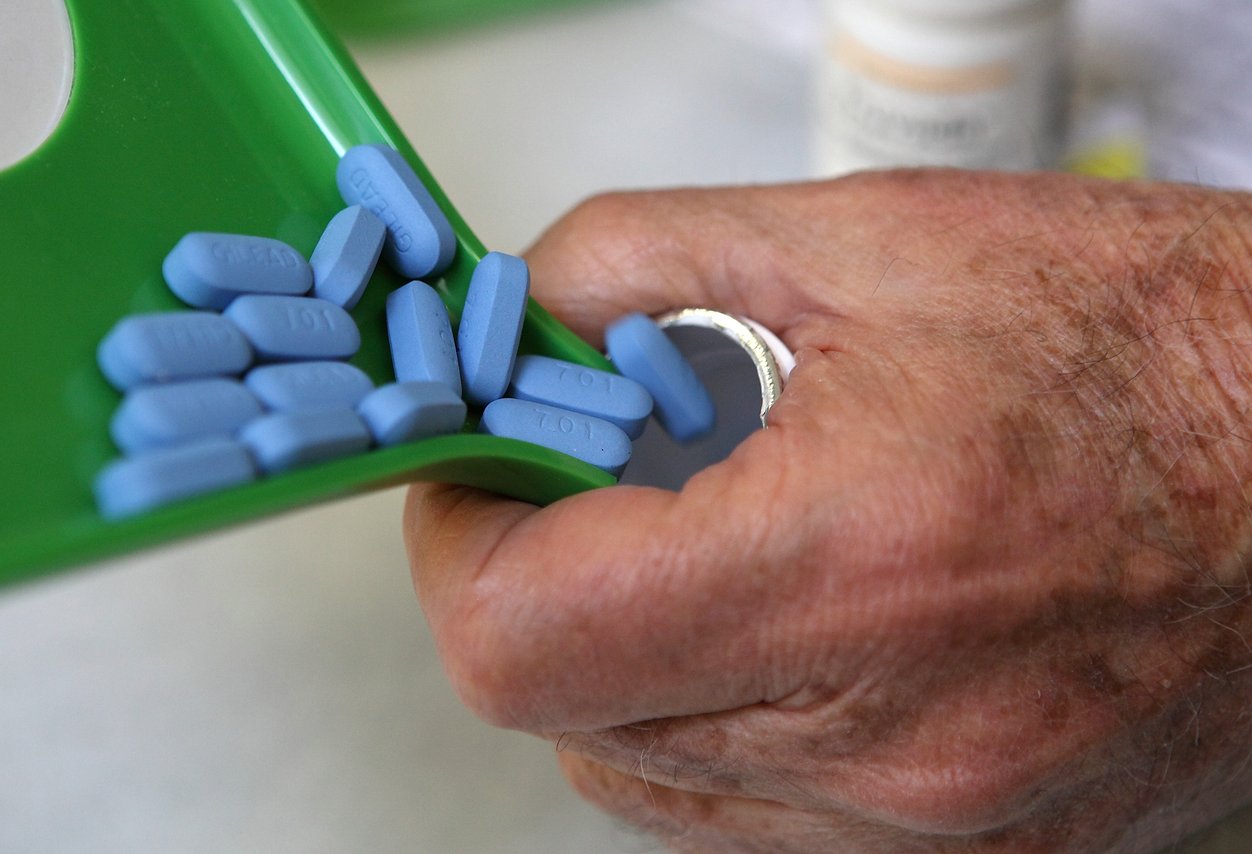Closer Look
Opinion: PrEP coverage is under fire, but there's a better way to protect it
 Justin Sullivan/Getty Images
Justin Sullivan/Getty Images
There's another decision by a Texas judge sending shudders down public health's spine, lawyer Richard Hughes writes in a STAT First Opinion. It doesn't involve abortion but it does affect coverage of disease screenings and PrEP for HIV. A March ruling said the ACA requirement for insurers to cover care and products recommended by the U.S. Preventive Services Task Force is unconstitutional because members of that panel were not appointed by the president and approved by the Senate, violating the U.S. Constitution's appointments clause.
The case is now being appealed, but Hughes argues that instead of relying on the task force to weigh in on the latest PrEP drug, the Biden administration should move that evaluation to CDC's Advisory Committee on Immunization Practices, the group we know from Covid vaccine decisions. "This could avert disruption to PrEP access for millions of Americans," he writes. Read why.
mental health
After surviving a gun injury, most children don't get timely mental health services
There are multiple horrifying numbers just in the introduction to this Pediatrics study of mental health services for kids who have survived gunshot injuries. For example: For every child who doesn't survive the leading cause of death among 10- to 17-year-olds, four children do, adding up to 11,258 kids with nonfatal injuries in 2020 whose mental health is at risk. Today researchers tell us that among 2,613 Medicaid-enrolled children age 5 to 17, their records show more than 3 in 5 children did not receive mental health services in the six months after their injuries.
Children with a previous mental health diagnosis were more likely to access and receive timely mental health care, as were the 1 in 12 children identified as needing it while being treated for their firearm injuries. White children had higher odds of using mental health services than Black children, suggesting access is inequitable.
Public health
New Jersey's Covid-prompted early release program for incarcerated people didn't crash services
In Covid-19's first year, New Jersey was among multiple states to release incarcerated people early in an attempt to reduce transmission of the virus. When the state shortened sentences by up to eight months in 2020, it prompted fears that reentry services would be overwhelmed by people with substance use disorder. A research letter in JAMA Health Forum compared releases of people with substance use disorders before the pandemic, in its first six months, and after the early releases began.
Among more than 10,000 incarcerated people, 526 required acute care for substance use and 32 people died of overdoses within 45 days after release, but the risk did not differ across the three groups. While the early release program strained New Jersey's reentry system, the researchers write, supports such as Medicaid enrollments, prerelease medications for opioid use disorder, and peer navigator programs may have made the difference.
In the U.S., Black women are three times more likely than white women to die as a result of childbirth. Black babies have an infant mortality rate that is twice as high as it is for white babies. The third episode of "Color Code" looks at efforts on Long Island to address these racial disparities. Listen here.


No comments